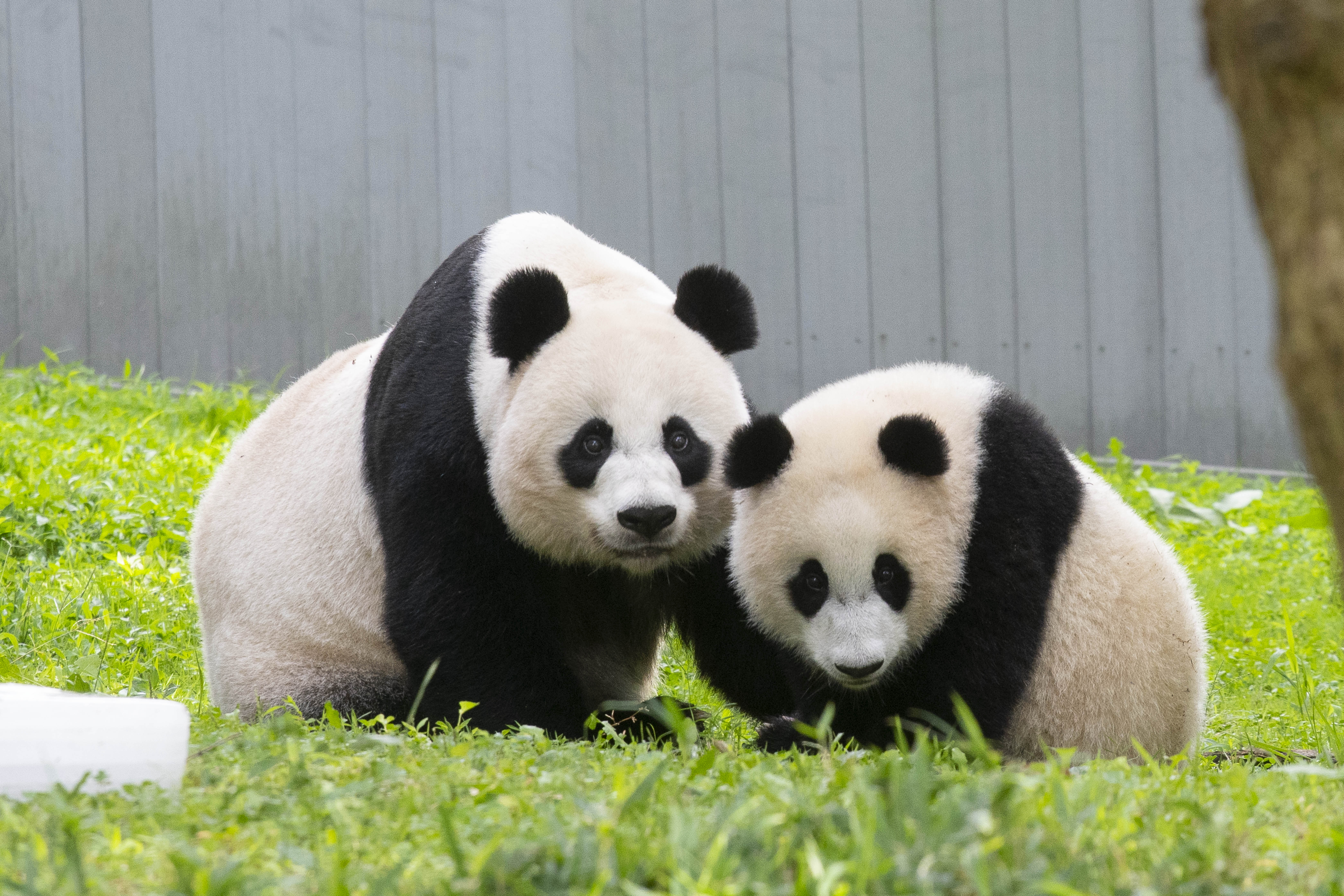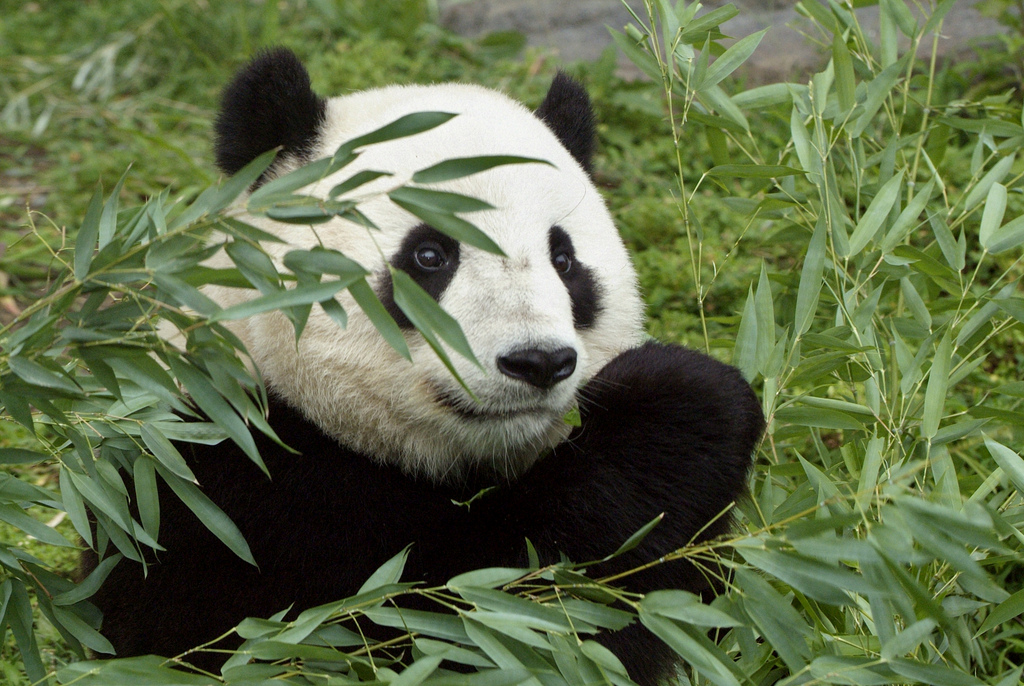The talk of pandas came up during meetings between U.S. and Chinese advisors at the APEC Summit. Now, San Diego Zoo executives are getting ready to make room for their return. NBC 7’s Joe Little reports.
What to Know
- San Diego researchers were the first to participate in a new model of conservation
- The giant pandas born at the San Diego Zoo have helped to produce 22 additional giant pandas in China
- The giant panda is still on the endangered species list but is less threatened than when the program began
Chinese President Xi Jinping signaled late Wednesday that China will send new pandas to the United States, calling them “envoys of friendship between the Chinese and American peoples.”
“We are ready to continue our cooperation with the United States on panda conservation, and do our best to meet the wishes of the Californians so as to deepen the friendly ties between our two peoples,” Xi said during a dinner speech with business leaders.
Get top local stories in San Diego delivered to you every morning. Sign up for NBC San Diego's News Headlines newsletter.
The gesture came at the end of a day in which Xi and President Joe Biden held their first face to face meeting in a year and pledged to try to reduce tensions. Xi did not share additional details on when or where pandas might be provided but appeared to suggest the next pair of pandas are most likely to be sent to California, probably San Diego.
Despite the San Diego Zoo returning its pandas in 2019, the park has kept the enclosure space on-site and still features signage reflecting that many of the bears once made their home their. After 23 years away from her home country, San Diego beloved former residents– giant panda Bai Yun, and her son, Xiao Liwu – arrived back in China in May 2019.
“We are excited to hear of President Xi’s commitment in continuing the giant panda conservation efforts between our two countries, and his attention to the wish of Californians and the San Diego Zoo to see the return of giant pandas,” said Paul A. Baribault, president and CEO of San Diego Zoo Wildlife Alliance. “Conservation starts with people, and our team is committed to working with our partners to welcome the next generation of giant pandas to our zoo, continuing our joint efforts in wildlife conservation, and inspiring millions worldwide to protect the planet we all share.”
The bears have long been the symbol of the U.S.-China friendship since Beijing gifted a pair of pandas to the National Zoo in Washington in 1972, ahead of the normalization of bilateral relations. Later, Beijing loaned the pandas to other U.S. zoos, with proceeds going back to panda conservation programs.
The National Zoo’s three giant pandas, Mei Xiang, Tian Tian and their cub Xiao Qi Ji, eight days ago began their long trip to China. After their departure, only four pandas are left in the United States, in the Atlanta Zoo.
“I was told that many American people, especially children, were really reluctant to say goodbye to the pandas, and went to the zoo to see them off,” Xi said in his speech. He added that he learned the San Diego Zoo and people in California “very much look forward to welcoming pandas back.”
Xi is in California to attend a summit of Indo-Pacific leaders and for his meeting with Biden. He made no mention of the pandas during his public remarks earlier in the day as he met with Biden.
When bilateral relations began to sour in the past few years, members of the Chinese public started to demand the return of giant pandas. Unproven allegations that U.S. zoos mistreated the pandas, known as China’s “national treasure,” flooded China’s social media.
But relations showed signs of stabilization as Xi traveled to San Francisco to meet with Biden. The two men met for about four hours Wednesday at the picturesque Filoli Historic House & Garden, where they agreed to cooperate on anti-narcotics, resume high-level military communications and expand people-to-people exchanges.
The National Zoo’s exchange agreement with the China Wildlife Conservation Association had been set to expire in early December and negotiations to renew or extend the deal did not produce results.
San Diego Zoo's Panda History
The San Diego Zoo Wildlife Alliance and China began collaborating on panda research and conservation of the species in 1996, when the species was threatened with extinction. Since the conservation agreement began between the San Diego Zoo and China, six cubs born in San Diego were sent to the China Giant Panda Conservation Research Center.
The San Diego Zoo's work with Bai Yun and her cubs helped o boost the wild population of pandas in China to more than 2,000, according to the zoo. In 2016, the International Union for the Conservation of Nature's Red List of Threatened Species changed pandas from endangered to vulnerable.
In October 2018, Bai Yun's longtime mate, Gao Gao, was returned to the Chinese Center for Research and Conservation for the Giant Panda. The father of five cubs born at the San Diego Zoo, Gao Gao had been living at the zoo for 15 years as part of the long-term loan agreement with the People’s Republic of China.
Associated Press writer Ashraf Khalil in Washington contributed to this report — Ed.



